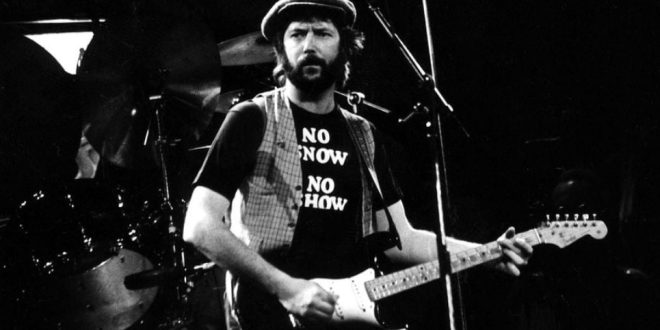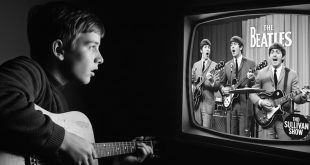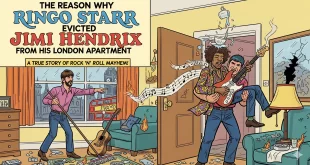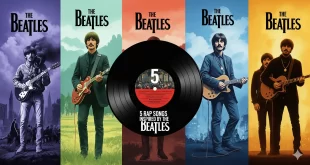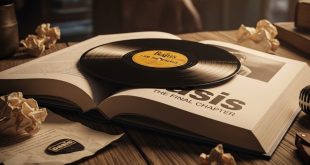Eric Clapton, one of the greatest guitarists in rock history, had a complicated relationship with The Beatles during the 1960s. Despite his close ties with George Harrison and his later contribution to While My Guitar Gently Weeps, Clapton once admitted that he initially found The Beatles “odd.” His first live experience of the band not only changed his opinion but also began a unique friendship that would shape rock history.
A Skeptical Beginning
Clapton’s introduction to The Beatles came in late 1964, when his band The Yardbirds shared a bill with them at the Hammersmith Odeon in London. At the time, The Beatles were already global superstars, dominating charts and touring relentlessly.
However, Clapton wasn’t entirely convinced by their hype. He later admitted that, before seeing them live, he was “very, very suspicious about what they were up to.” To Clapton, the hysteria surrounding them seemed artificial, built more on screaming teenagers than on musicianship.
The Hammersmith Odeon Revelation
When Clapton finally saw The Beatles on stage, his doubts evaporated. He was astonished by how tight and unified they were as a band.
“This band was like they were a single person. It was an odd phenomenon, in fact. They seemed to move together and think together. It was almost like a little family unit,” Clapton recalled.
The group’s ability to perform seamlessly, almost telepathically, struck Clapton as something extraordinary. What seemed “odd” to him was their near-perfect synchronicity—a quality unlike anything he had ever witnessed before in rock and roll.
The Audience Problem
Although Clapton was impressed with The Beatles’ playing, he was frustrated by the audience. The shows were dominated by screaming teenage girls, many of whom were too caught up in Beatlemania to appreciate the music being played.
Clapton admitted:
“Each one of them seemed to be very well endowed with their own musical capacity. But the sad part was that no one listened to them… They were, you know, 12-year-old girls.”
For a blues purist like Clapton, who valued musical authenticity, it was difficult to reconcile the brilliance of The Beatles with the pop hysteria that often drowned out their sound.
Clapton and The Beatles: From Outsider to Insider
Despite his initial skepticism, Clapton soon became part of The Beatles’ extended circle of friends. His closest bond was with George Harrison, whom he would remain connected to for decades—sometimes in complicated ways, including his relationship with Harrison’s then-wife, Pattie Boyd.
Clapton’s most famous Beatles contribution came in 1968, when Harrison invited him to play lead guitar on While My Guitar Gently Weeps for the White Album. Clapton’s solo remains one of the most iconic guest appearances in Beatles history.
There was even a moment when Harrison briefly quit the band in January 1969, and John Lennon suggested that Clapton could replace him—though this never materialized.
Respect Without Envy
Unlike many musicians of the era, Clapton never expressed jealousy over The Beatles’ unprecedented fame. He acknowledged their generosity, describing them as kind and welcoming:
“They were very generous to everybody. They took time to come and talk to everybody. I didn’t feel threatened at all because I had quite a lot of self-confidence… I wasn’t looking for any favours from anybody.”
This mutual respect allowed Clapton to remain close to The Beatles without being overwhelmed by their superstardom.
Conclusion
Eric Clapton’s description of The Beatles as “odd” was not an insult, but rather an acknowledgment of how unique they truly were. Their ability to function as one cohesive unit set them apart from every other band of the era.
What started as skepticism evolved into deep admiration, a legendary collaboration, and a lifelong friendship—particularly with George Harrison. Clapton’s story is a reminder that even the most talented musicians can be taken aback by the magic of The Beatles.
